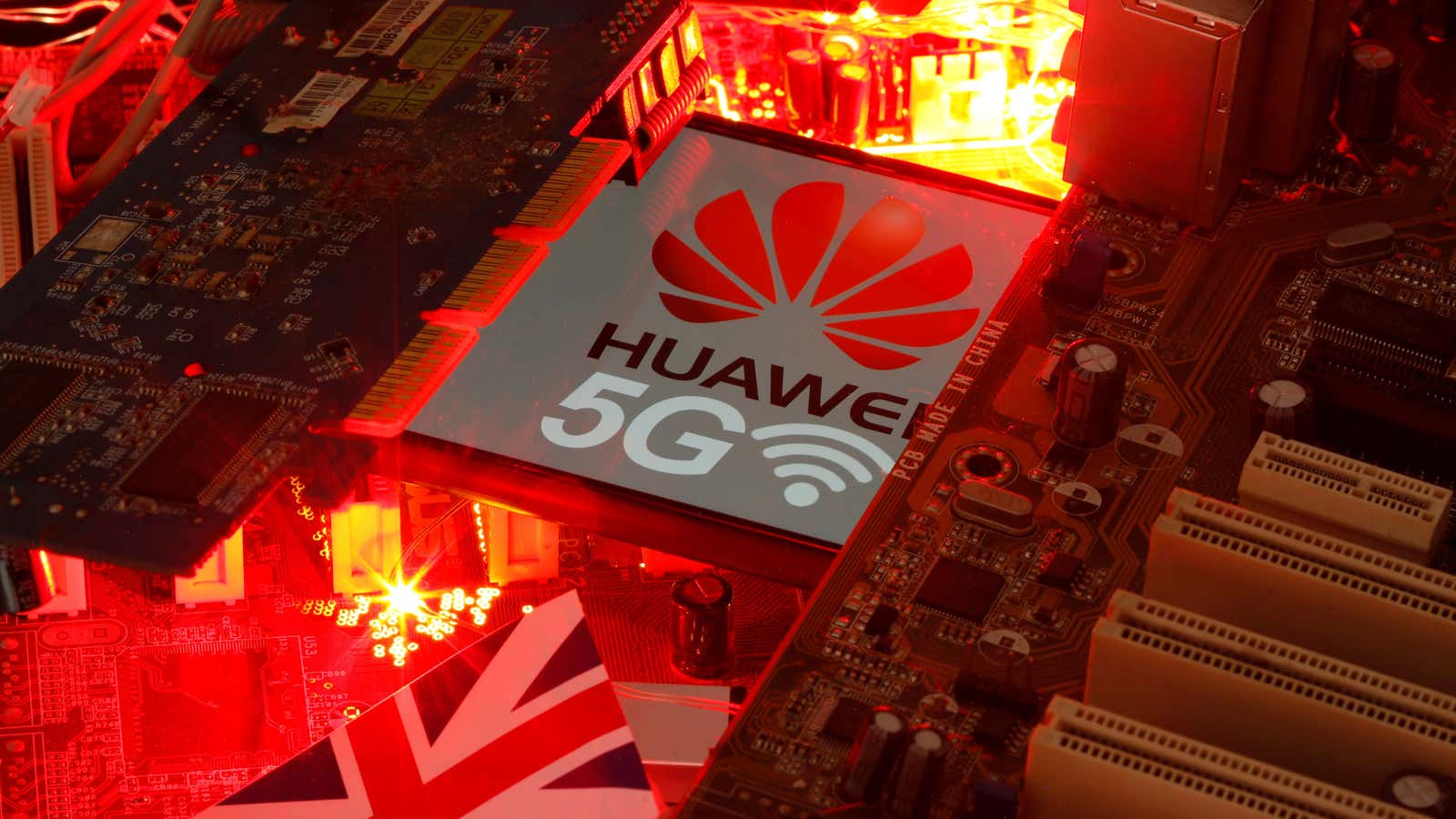Why is a law normally employed by federal prosecutors to rein in organized crime being used to charge a tech company? The US government is accusing Huawei of violating the Racketeer Influenced and Corrupt Organizations Act—known as RICO—adding to the existing list of criminal charges against the Chinese telecom giant.
In a superseding indictment unsealed last week (Feb. 13), the Department of Justice (DOJ) charged Huawei and two American subsidiaries with conspiracy to violate the anti-racketeering law, as well as conspiracy to steal trade secrets from six US tech companies. Legal experts say the use of the RICO law by DOJ against a corporation, especially one the size of Huawei, is unusual.
To be sure, RICO is more familiar territory for mob lawyers than tech giants. The 1970 law, initially used as a tool by federal prosecutors to bring down organized crime units like the Mafia or the Hell’s Angels, has expanded over the years to include Big Pharma execs, the international football governing body FIFA, Wall Street brokerage houses, and even members of Congress. The anti-racketeering law carries penalties of 20 years in prison per count, as well as fines. Under RICO, racketeering occurs when an individual or entity commits two offenses—including murder, extortion, securities fraud, and other serious crimes—within a 10-year period. In the case of Huawei, the DOJ is citing theft of trade secrets.
Professor G. Robert Blakey, who authored the RICO law, said that solely associating RICO with organized crime is a common misconception. “If you think RICO only applies to the mob, you’ve made a mistake. The answer is that it was never designed only for the mob,” said Blakey. A 1985 Supreme Court decision paved the way for the use of RICO in civil suits, paving the way for individuals to allege RICO allegations against legitimate businesses.
But the use of RICO by the DOJ against a corporation is still uncommon. Professor Jeffrey Grell, who teaches a course on RICO at the University of Minnesota Law School, says it is rare for the DOJ to bring RICO claims in any context—especially since, in the case of Huawei, the defendant is directly engaged in the alleged criminal activity.
“RICO is an expensive and time consuming cause of action, and there is no need to use RICO when the defendant is directly engaged in the criminal conduct alleged by the DOJ. RICO is only necessary when the defendant is removed from the criminal conduct, essentially using others as puppets to engage in crimes,” wrote Grell in an email to Quartz. In the case of Huawei, the DOJ is accusing the entire company, not just a few higher-ups.
So why call on the act at all? Grell believes the DOJ used RICO against Huawei in order to impose a liability on the corporate entities themselves, instead of just targeting individuals. If Huawei is convicted, the indictment asks the court to forfeit the proceeds of any criminal activity. In other words, Huawei could be forced to pay up.
“Essentially, if convicted of RICO, Huawei will lose money and property,” wrote Grell. RICO also allows the US federal government to target criminal conduct that happens abroad, but only if it has a domestic impact.
Domestically, the US government believes that Huawei has already done damage. The DOJ wrote in a press release that Huawei and its US subsidiaries stole trade secrets from US tech companies, which gave the company a “significant and unfair” competitive advantage. It claimed in the indictment that Huawei and its California-based subsidiary, Futurewei, stole operating system code and other trade secrets from Cisco, and used that information to create Huawei-branded routers that they sold in the US.
In a statement, Huawei disputed the claims made by the DOJ. “None of our products or technologies have been developed through the theft of trade secrets. Huawei’s development is the result of our huge investment in R&D and the hard work of our employees over the past three decades. We rely on the trust and support that our customers, suppliers, and partners place in us.”
